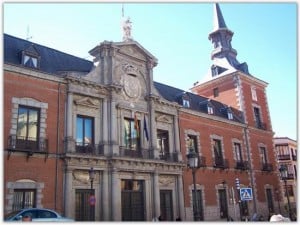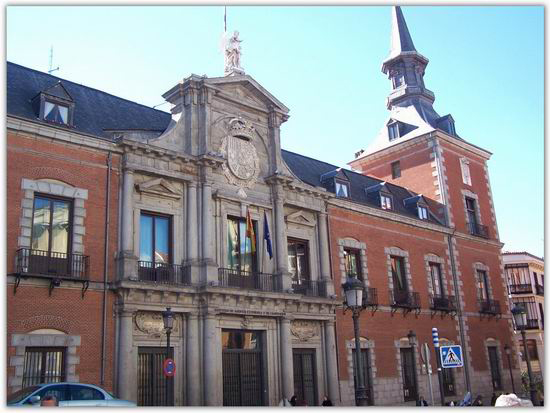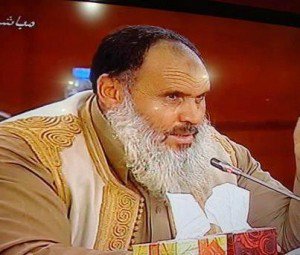By Libya Herald reporters.

Tripoli, 16 September 2014:
Foreign ministry representatives from some 16 countries sit down tomorrow in the grandiose surroundings of . . .[restrict]the Palacio de Viana to search for a unified response to the growing risk of civil war in Libya.
Spain’s foreign minister José Manuel García-Margallo has described the Libyan conflict as “desperte” and “extremely worrying”, adding that a resolution of the crisis is ”fundamental” to regional stability. He is looking for concrete results from the Madrid gathering.
He is hosting the meeting at the foreign ministry building, along with fellow Spaniard Bernardino Leon, the newly-appointed chief of the UN Support Mission in Libya (UNMSIL). Leon flew in today from New York where he had given the UN Security Council a sombre report though he nevertheless maintained that he saw a “window of opportunity” for a negotiated peace
Besides Libyan foreign minister Mohamed Abdelaziz, delegates are expected from Algeria, Chad, Cyprus, Egypt, France, Greece, Italy, Malta, Tunisia, Morocco, Mauritania, Niger, Portugal and Sudan. There will also be representatives from the Arab League and the African Union.
All the participants have recognised the House of Representatives as the sole legitimate parliament. Libya’s North African neighbours affirmed this at a conference in Cairo last month. Prime minister Abdullah Thinni has however since accused Sudan of arming and supporting Libya Dawn forces in Tripoli and Misrata, an allegation angrily denied by Sudan and by Qatar, which Thinni also maintained was involved.
The Madrid meeting, which will be held behind closed doors, is going to seek to reaffirm the legitimacy of the HoR and Thinni who is shortly to announce his new slimmed-down crisis government. The concern has to be that rival factions within Libya will be sustained by competing outside powers, thus making an internal settlement all the more difficult to achieve.
Leon has headed a list of envoys, including, the Italians, British, French and Germans seeking to find common ground among the contesting parties. Though they hold the capital and have revived the defunct General National Congress, which in turn has appointed its own government, Libya Dawn forces are vulnerable to international sanctions. While Central Bank governor Saddek Elkaber, just fired by the HoR, appears to have thrown in his lot with Libya Dawn, access to Libya’s foreign reserves, much of which are held offshore, is already limited if not cut off entirely.
The United Nations and the International Criminal Court in the Hague have threatened sanctions, including individual prosecutions for those suspected of committing or encouraging the perpetration of war crimes. The Security Council’s Sanctions Committee has been charged with drawing up a list of suspects. Even if that list is already complete, it is thought unlikely that it will be published while there is still a chance of persuading some of the militia leaders and supporters on it to end the fighting, disarm, as demanded by the Cairo Libya Neighbours’ conference and enter into negotiations.
Moreover the issue of international prosecutions is likely to be sensitive at the meeting given that since 2009, the ICC has had an outstanding warrant for the arrest of Sudanese president Omar al Bashir, who is accused of war crimes in Darfur.
The only Libyan present in Madrid are from the government appointed by the HoR. None of the other parties to the conflict has been invited. In an apparent effort to have Chad present Libya Dawn’s case tomorrow, Muslim Brotherhood leaders, Ali Salabi and Nizar Kawan, who is also part of the revived GNC and a member of the Justice and Construction party, have just been in the Chadian capital N’Djamena and held talks with President Idriss Déby. [/restrict]










